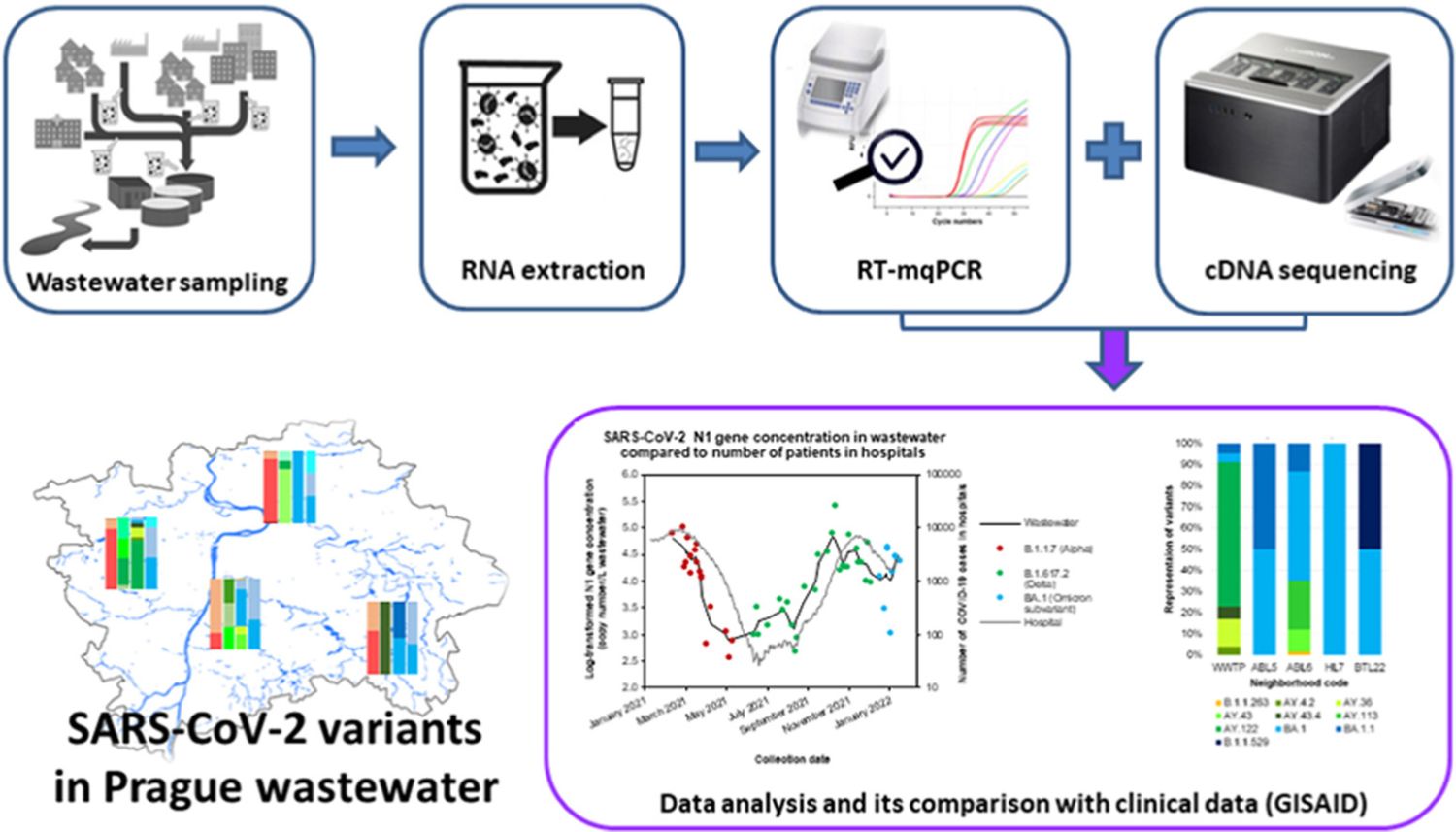Researchers at the University of Chemistry and Technology in Prague together with colleagues from Military Health Institute and Prague Water Supply and Sewerage Company have successfully utilized nanopore-based sequencing to determine the prevalence of SARS-CoV-2 variants in wastewater throughout Prague. The study, published in Chemosphere, demonstrates that wastewater-based epidemiology (WBE) can serve as an early warning system for emerging COVID-19 variants, potentially providing critical data ahead of clinical sample results.

Figure 1: Graphical abstract
The research, conducted between March 2021 and February 2022, involved the collection of 300 wastewater samples from various sub-sewersheds across Prague, 80 of them were sequenced. These areas included residential buildings, hospitals, a bus terminal and main Prague´s sewer, covering districts with diverse population sizes and dynamics. The study focused on monitoring the waves of the Alpha (B.1.1.7), Delta (B.1.617.2), and Omicron (B.1.1.529) variants.
"Our findings indicate that the number of identified SARS-CoV-2 RNA copies in wastewater increased earlier than in clinical samples, suggesting that WBE can provide an early indicator of upcoming infection waves," said Kamila Zdeňková, corresponding author of the study. "This early detection capability is vital for implementing timely public health interventions."
The study revealed significant differences in the progression dynamics of SARS-CoV-2 lineages among the various localities studied. In particular, areas with higher population density and mobility exhibited a faster prevalence of new variants. This granular geographical data enhances the ability to predict and manage potential outbreaks more effectively.
"Monitoring individual localities within a city provides valuable insights that are not always apparent from clinical data alone," said Alžběta Dostálková, first author of the study. "This approach can inform targeted responses to outbreaks, making public health strategies more efficient and effective."
Nanopore-based sequencing, chosen for its suitability and acceptance in SARS-CoV-2 surveillance, proved effective in this study. The methodology allowed researchers to identify and quantify SARS-CoV-2 RNA in wastewater samples, providing a comprehensive view of the virus's spread across Prague.
"This study underscores the importance of maintaining robust surveillance systems even as the COVID-19 pandemic stabilizes," Zdeňková added. "Wastewater-based epidemiology remains a crucial tool for monitoring and controlling the spread of not only SARS-CoV-2 and its variants but also other viruses excreted and detectable in wastewater."
The research team's work represents a significant contribution to the understanding of SARS-CoV-2 variant distribution in wastewater, not only in Prague but potentially across the European region. By highlighting the effectiveness of WBE, this study supports its continued use and development as a key component of public health infrastructure.
Text is based on the research article:
Prevalence of SARS-CoV-2 variants in Prague wastewater determined by nanopore-based sequencing

